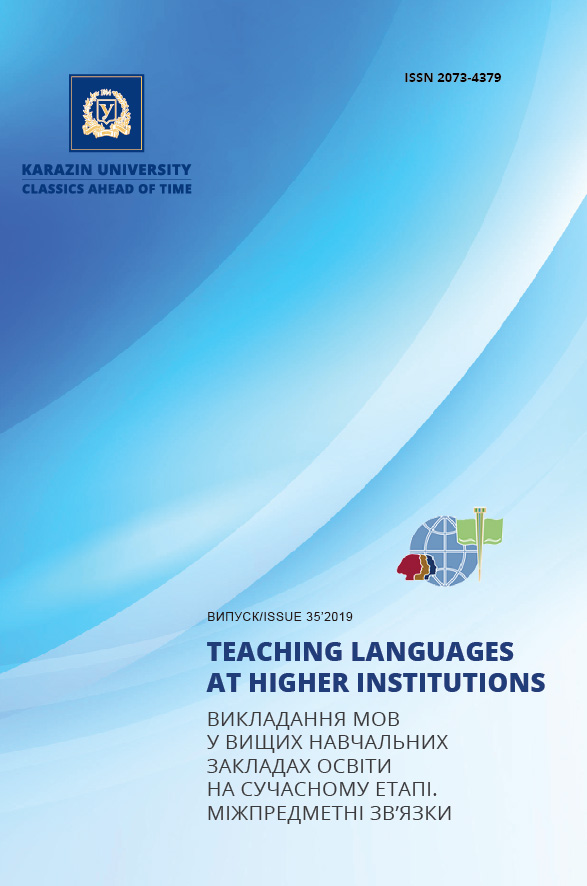“Evaluation” or “assessment”as a result of determination of a quality level of students’ knowledge
Abstract
Education in Ukraine is the basis of intellectual, cultural, spiritual, social and economic development of society; it should be obtained as a result of consistent, systematic, purposeful assimilation of knowledge, ensuring comprehensive development of the student's personality. Higher education in Ukraine is developed and reformed mainly due to the state development and is perceived as an integral structural element of the state system. The author emphasizes that education in Ukraine has always combined the education and upbringing of young people, their scientific activities, in particular, scientific research in various fields of science.
The development of education in the present conditions poses many new tasks related to improving the quality of students’ training with higher education. An important place in the preparation process is the assessment of students’ knowledge quality level in the study of the subject.
We consider the pedagogical assessment of students’ knowledge quality as two important links in learning – as a process and as a result: on the one hand, the ability of the teacher to convey meaningful knowledge to students in learning subject, and on the other – to determine the quality of their knowledge gained through the accumulation of information, contained in textbooks, on the Internet, obtained from the teacher. Our study clarifies the use of the term pedagogical assessment of the quality of knowledge, which is interpreted in American literature as “evaluation” and “assessment”. These two terms are very close in meaning and are often used in the evaluation process as synonyms, replacing each other, and this is what makes it difficult to translate and use them in the initial process. The significance of the meaning of these two terms is highlighted in the article and the expediency of their use in the process of assessing the quality level of students’ knowledge is substantiated; in particular, the author pays special attention tothe function of assessment for the development of students and the formation of their personality.
Downloads
References
Bulakh, I. (2005). Concepts and categories of pedagogic diagnostics. Educational and methodical and reference materials for teaching staff. Part I. Theory. Iryna Bulakh (Ed.). Kyiv: Master-class [in Ukrainian].
Harlen, W. (1980). Values and Evaluation in Education. Evaluation in Education in Straughan R. & Wringley J. London: Harper & Row [in English].
Harris, W. (1968). The nature and functions of educational evaluation. Peabody Journal of Education. London, XLVI, September [in English].
Wiliam, D. What is the assessment for learning? Available at: https://doi.org/10.1016/j.stueduc.2011.03.001Get rightsandcontent [Accessed 17 Aug. 2019] [in English].
Wilmut, J. (2005). Two values and two definitions of the concept of evaluation. Fundamentals of pedagogical evaluation. Part I. Theory: Educational and methodological and reference materials for teaching staff. K.: Master-class, pp. 19–21 [in Ukrainian].
Zvarych, I.M. (2014). The USA teachers’ pedagogical activity evaluation at the higher learning institutions (the second part of the XX-th century and the beginning of the XXI-st century). K.: Feniks [in Ukrainian].
Zvarych, I.M. and Marushkevych, A.A. (2018). The education quality measuring: American experience. EURERA: Social and Humanities, 1 (13), pp. 54–63 [in English].

